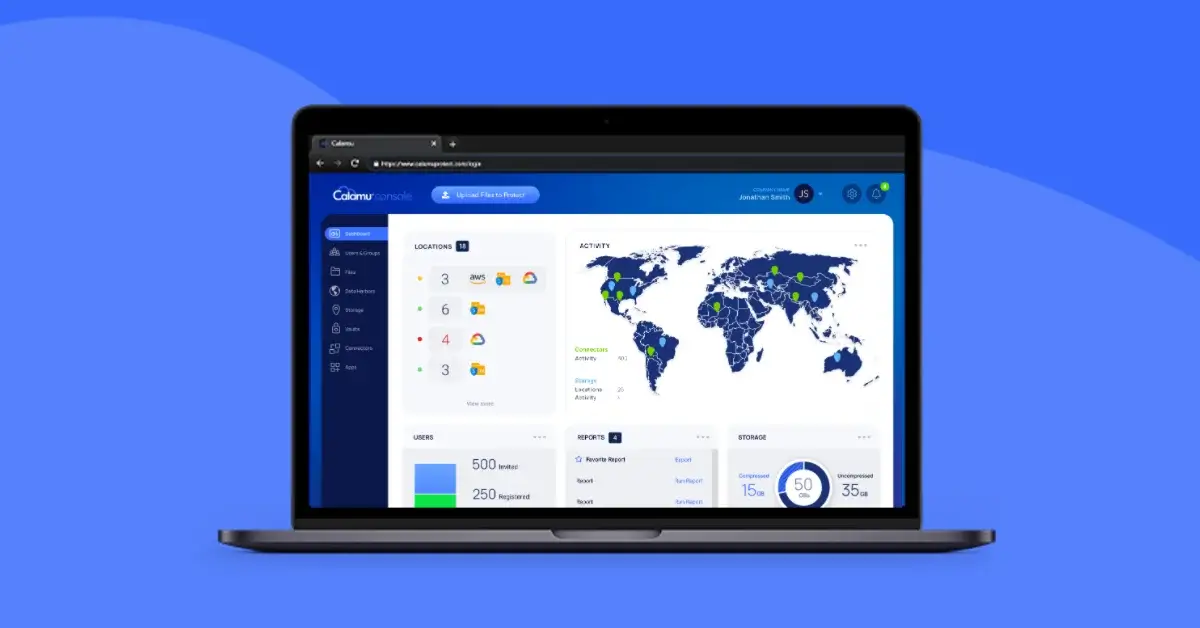In Clinton, New Jersey, Paul Lewis watched his golden retriever search for a safe place to bury his most prized possession, a rawhide bone. When he later stashed the bone across the street in a public park, the comparison to public cloud storage was not lost on Paul, a court-appointed expert in cybersecurity and serial entrepreneur.
“Everyday I would spend hours thinking about how to make the public cloud safer,” said Paul Lewis, CEO and Founder of Calamu. “I would ask myself, why does it seem so impossible to store data safely without making it completely inaccessible for everyday use?”
Paul Lewis is no stranger to the subject, having founded multiple successful cybersecurity companies including PG Lewis & Associates and MC² Corporation, and having been a contributing advisor to NIST, the SEC, and the FBI. And yet the cyber world has never been a more dangerous place for businesses, with data breaches and ransomware attacks a relentless threat. For Paul, his golden retriever gave him an idea.
“Everything is heading towards the cloud, but not everyone is comfortable storing their sensitive data in what is essentially the public domain,” said Paul. “But what if your data could be easily fragmented across multiple clouds in a way that a breach would not yield usable data, and it could be instantly reassembled when needed for authorized use?”
That is the premise of data-first security, data stored in a way that even if a perimeter is breached, the data itself is secure. Even if a hacker finds their way into your storage environment, they cannot steal or exfiltrate anything of value.
“Data-first security is about protecting the data itself, so that it has no meaning unless it’s accessed by an authorized user,” said Paul. “Even if a hacker gains access to your storage environment, data-first security prevents them from weaponizing data against you.”
Ransomware changed everything when hackers found new ways to monetize cyber crime. However, double-extortion ransomware, also known as multi-layered ransomware, is what keeps most business leaders up at night.
“In a double-extortion ransomware attack, hackers steal a copy of your data before they demand you pay the ransom,” said Paul. “And if you don’t pay, they threaten to leak your sensitive data. This practice has proven so effective in getting a payout that it’s now attempted in almost every ransomware attack today.”
Even if your data was protected using encryption, it’s often defeated by hackers when they gain access using stolen privileged credentials. They enter a storage environment that has sensitive information complete in one place, and nothing keeps them from copying valuable data offsite, according to Lewis.
“With data-first security hackers will essentially hit a dead end, since they cannot read or use the data,” said Paul. “Unlike typical encryption solutions, with Calamu a whole file does not exist in any single location. This makes it nearly impossible for hackers to find all the fragments required to assemble data back to a usable, ‘ransom-worthy’ state.”
Calamu’s mission is to make the cyber world safer for business through innovative, data-first security. Calamu's technology is used by leading enterprises across technology, manufacturing, financial services, healthcare, and more to keep sensitive data out of enemy hands and to ensure operational resilience. Learn more about data-first security and Calamu.




